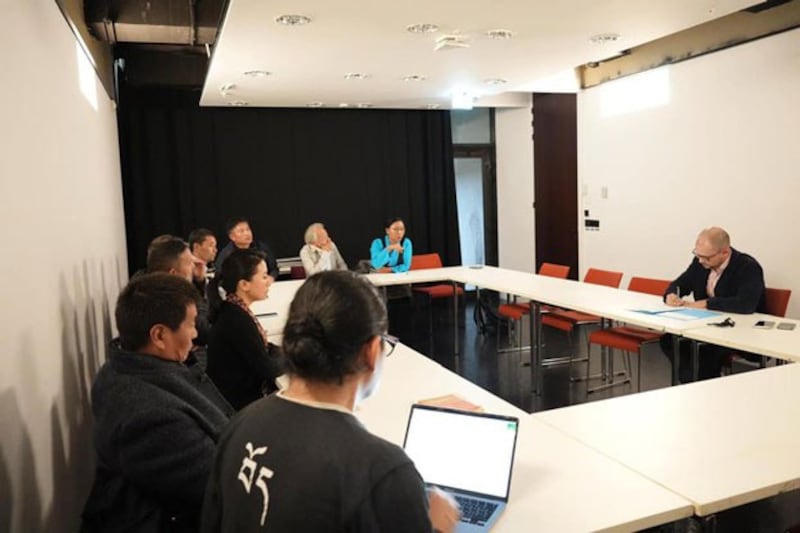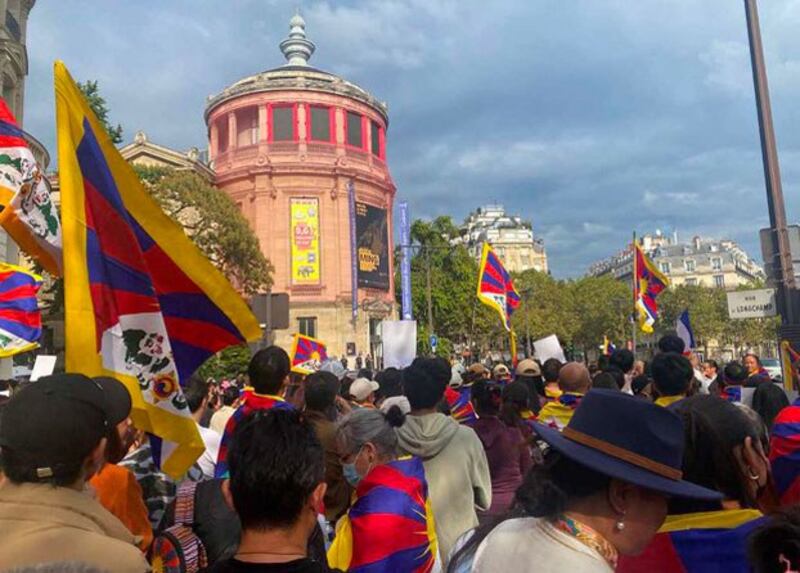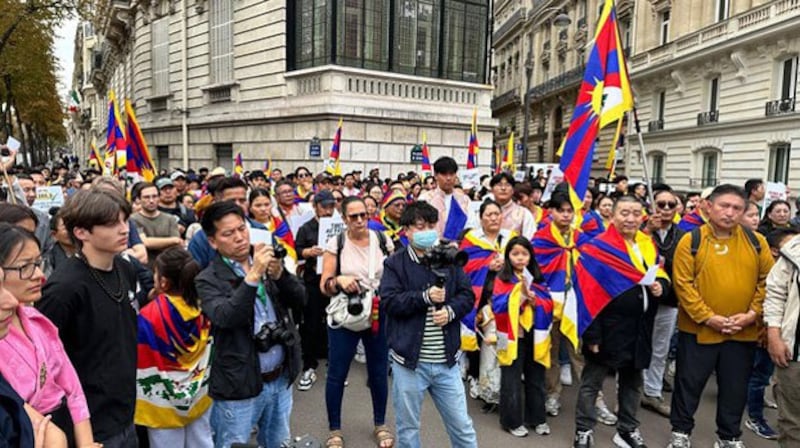Read RFA coverage of this topic in Tibetan here , here and here .
A French museum that replaced “Tibet”' with “Xizang” — a term promoted by the Chinese government but opposed by Tibetan advocates — said it would undo the change in its exhibits, following protests and petitions by Tibetans.
Last year, China decided to adopt the term "Xizang" in all its official documents to refer to "Tibet" — an example, activists say, of Beijing's attempts to erase their linguistic and cultural heritage.
The Musée du Quai Branly-Jacques Chirac in Paris, which displays indigenous art from Africa, Asia, Oceania and the Americas had renamed an exhibit with Tibetan artifacts as “Xizang.”

The museum acknowledged “inaccurateness” and told Radio Free Asia it would soon remove “Xizang” from displays and labels.
Tibetan activists and scholars accused the institution of acquiescing to the Chinese government’s attempts to rewrite history and enabling Beijing’s Sinicization of Tibetans into Chinese culture. They said the name change was contrary to the museum’s principle of preserving “historical aspects.”
Similarly, Tibetans in France also protested against Paris’ Musée Guimet, which has one of the largest collections of Asian art outside of Asia, saying it had kowtowed to Chinese pressure in referring to its Tibetan section as the “Himalayan World.”
On Aug. 31, about 20 experts in Asian studies wrote an open letter published in Le Monde expressing concern over the decision of the two French museums to use language that "reflects Beijing's wishes," calling it a threat to the academic integrity of Tibetan history.

Then on Sept. 21 and 29, over 700 Tibetans and other supporters held protests in Paris, carrying Tibetan flags, shouting slogans, and carrying placards in French that read "Stop Sinicizing Tibetan history and culture" and "Tibet in the past, present, and future; Tibet will remain Tibet."
Clément Tougeron, international affairs advisor to the president of the Musée du Quai Branly, met with representatives from six Tibetan organizations on Sept. 25 and apologized for being insensitive.
He said all artifacts from Tibet in the museum’s catalog would be identified as “Tibet” instead of Xizang within three weeks.
Sikyong’s letter
Sikyong Penpa Tsering, the democratically elected president of the Tibetan government-in-exile, also voiced his disappointment in a letter sent to several key leaders in France earlier this month, including the French minister of culture and the mayor of Paris, as well as to the directors of the two museums, calling for their intervention.
RELATED STORIES
[ EXPLAINED: Why do places in Tibet have both Tibetan and Chinese names?Opens in new window ]
China's 'virtual invasion' of India and the cultural genocide of Tibet (COMMENTARY)
[ China replaces ‘Tibet’ with ‘Xizang’ in latest diplomatic documentsOpens in new window ]
“Such action of pandering to the wishes of the People’s Republic of China (PRC) government is deeply regrettable and that needs course correction,” he wrote.
He said it was disheartening that the cultural institutions in France — “a nation that cherishes liberty, equality, and fraternity — are acting in complicity with Beijing in its design to erase the identity of Tibet.”
“This utter disregard for linguistic norms and aspirations of the people of Tibet sets a dangerous precedent for democratic nations worldwide.”

The Tibet Museum of the Central Tibetan Administration, as the government-in-exile is formally known, also denounced the French museums' decisions as a troubling distortion of history and a threat to Tibet’s cultural identity.
It noted that the renaming was part of a wider effort at the 7th International Seminar on Tibetan Studies in Beijing in August 2023, where scholars, including Wang Linping, pushed for the adoption of “Xizang” as a way to reframe Tibet’s identity on the global stage.
“This is not merely a linguistic preference but a political tactic, part of China’s long-standing campaign to reshape the world’s understanding of Tibet, just as it has done with other occupied regions like East Turkestan, rebranded as Xinjiang,” said Tenzin Topdhen, director of the Dharamsala, India-based Tibet Museum.
Additional reporting by Dickey Kundol and Lobe Socktsang for RFA Tibetan. Edited by Tenzin Pema, Roseanne Gerin and Malcolm Foster.
